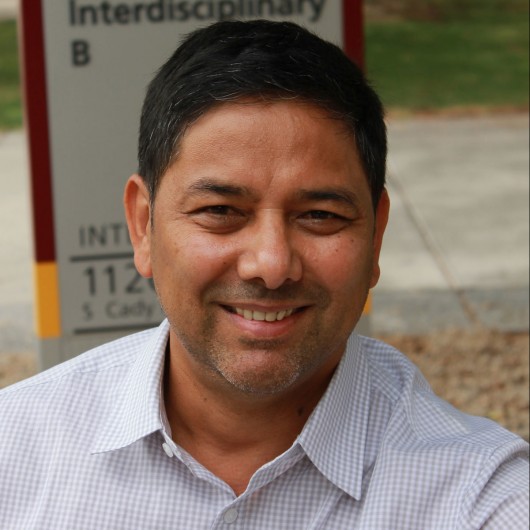Rethinking Science, Policy
Development Orthodoxy in the Himalayas
A Case of Persistent Policy Failure in Agriculture
In an era of globalization and environmental uncertainty, improving the livelihoods of smallholder farmers has become a high priority in agricultural development agenda of policy makers.
About the Seminar
May 09, 2014 8:30am
In an era of globalization and environmental uncertainty, improving the livelihoods of smallholder farmers has become a high priority in agricultural development agenda of policy makers. Yet, conventional processes of implementing development cooperation to assist and aid smallholder farmers has had mixed results over the decades and its efficacy is still in question. The fact that development practitioners and academics alike are vexed by the question of how development interventions, especially driven from ‘western’ worldview has continually failed to deliver its promise of eradicating hunger and access to food has led critics to raise concern that development cooperation has not only failed to reach the most in need, it has frequently been the cause of poverty and marginalization. While it is not the intention of this talk to engage in this complex debate at length, rather, with focus on Nepal, I will shed light on the multiple realities of development. To illustrate, I will talk about the practices of development by High Mountain Agribusiness and Livelihood (HIMALI) project and Nepali NGO – Local Initiatives for Biodiversity Research and Development. Funded by Asian Development Bank, and implemented by the government of Nepal, the thrust of HIMALI project is the formation of commercially viable agribusinesses in the mountain region of Nepal. Known for its pioneering work on participatory technology development, through its partner organization, LI-BIRD works on a broad range of issues related to food security, biodiversity, and sustainable development.
Series Sponsored by:
ASU Office of the President
Consortium for Science, Policy and Outcomes
Location Information
1834 Connecticut Ave NW, Washington
Links
Seminar Video
Past Series
-
October 03, 2024 3:30pm
Carbon Removal Social [Science]
Holly Buck, Sara Nawaz, Rory Jacobson, Marcela Mulholland, Amanda Borth
-
June 04, 2024 12:00pm
Hopeful Climate Futures through Speculative Storytelling: Decolonizing Global Climate Action
Chinelo Onwualu, Joey Eschrich
-
April 29, 2024 9:00am
Public Funding, Patents, and Technology Transfer: Learning from the Contrasting Oxford and Texas Models of COVID-19 Vaccine Production and Distribution
Ken Shadlen
-
March 21, 2024 9:00am
Inspirations from European Technology Assessments: Institutions, Practices and Key Debates
Anja Bauer
-
May 10, 2024 9:00am
Adapting Federal Programs to Evolving Public Values: Insights from the Department of Energy
Darshan Karwat, Matthias Galan
-
April 30, 2024 9:00am
ASU’s Milo Space Science Institute: Increasing the World’s Access to Space
Jim Bell
-
January 22, 2024 12:00pm
Reinventing Participatory Technology Assessment
Nicholas Weller, Amanda Borth, Emily Hostetler, Jared Owens, Arthur Daemmrich
-
November 17, 2023 9:00am
“Unacceptable Costs”: Managing for biological invasions and climate risks in the US Pacific Islands
Laura Brewington
-
October 30, 2023 9:00am
Patent Data & Publicly-Funded Research: Applications, Benefits, & Misuse
Bhaven N. Sampat
